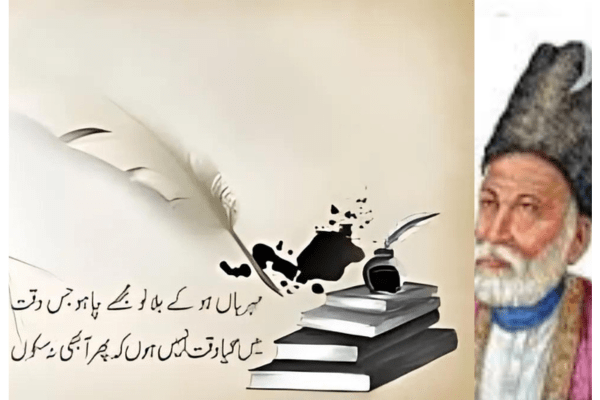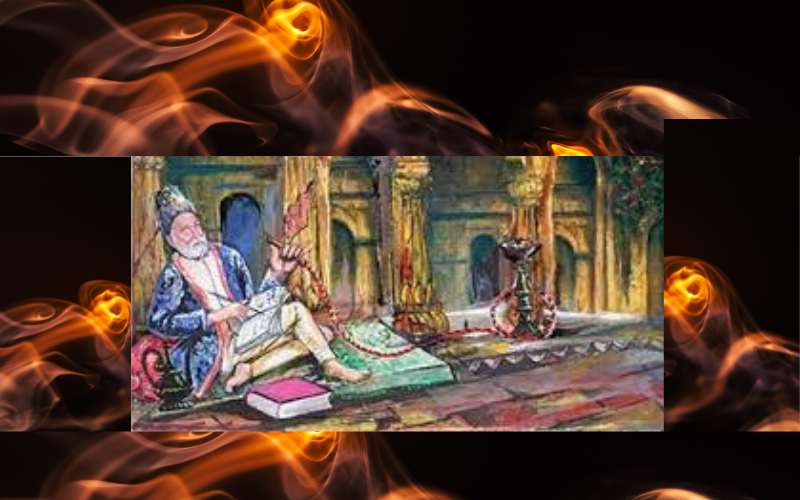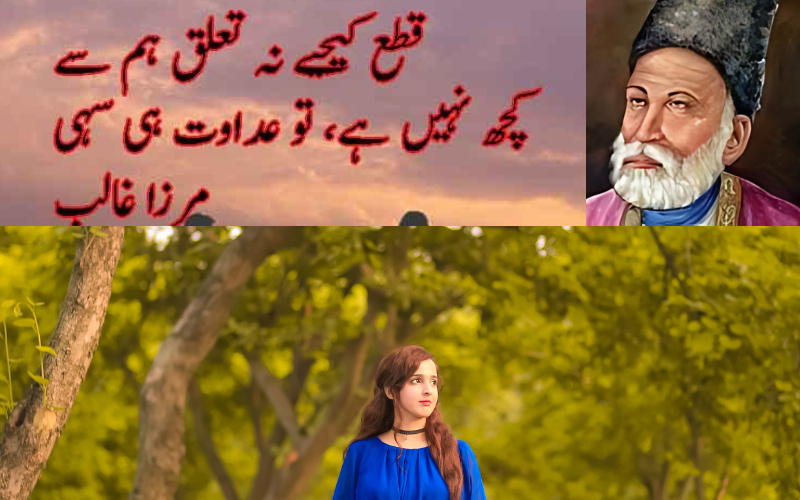
Introduction:

One of the most well-known poets in the annals of Persian and Urdu literature, Mirza Ghalib, is particularly dear to poets all over the world. Ghalib, real name Mirza Asadullah Baig Khan, was born in Agra, India, on December 27, 1797. His creative brilliance was unmatched. Millions of people are still inspired by him today because of his insightful and thought-provoking poetry, distinctive style, and distinctive language.

Early Life and Education

He became an iconic figure in his day. This article explores Mirza Ghalib’s legacy, life, and literary contributions, as well as his impact on contemporary poetry. A Turkish-descended family welcomed Mirza Ghalib into the world at birth. Ghalib was raised by his uncle following the loss of his father when he was a little boy. He moved to Delhi to spend the most of his life after getting married at the age of 13. Ghalib’s love of poetry endured despite his turbulent personal life, which was characterised by financial hardships and the early deaths of his children. He was an independent scholar who fell deeply in love with poetry, philosophy, and history after reading a great deal of Persian and Urdu literature.

Literary Career:

Mirza Ghalib started composing poetry at an early age, mostly in Persian, the Mughal Empire’s court tongue. His distinctive style, which fused the changing subtleties of Urdu with the ancient Persian traditions, won him prominence in Delhi’s literary circles. A vast spectrum of emotions, including love, grief, spirituality, and nihilism, were conveyed in Ghalib’s poetry. His ghazals distinguished him from his peers with their intricacy, humour, and intellectual profundity.
Challenges and Recognition
Mirza Ghalib’s Works: Ghalib wrote hundreds of ghazals, quatrains, and letters. His body of work was vast. “Diwan-e-Ghalib,” his collection, is still regarded as a classic of Urdu literature. Ghalib frequently expressed his views on the pointlessness of existence, the suffering of unfulfilled love, and the quest for heavenly connection in his poetry, which is full of metaphor and symbolism. In contrast to many other poets of his era, Ghalib dabbled in political commentary, social critique, and philosophical reflections in addition to the conventional subjects of love and be: Mirza Ghalib had many difficulties in life despite his extraordinary skill. After the fall of the Mughal Empire, he battled with loss of patronage, political unrest, and financial difficulty. However, when his creations became more well-known, Bahadur Shah Zafar, the final Mughal emperor, gave him the titles “Dabeer-ul-Mulk” and “Najm-ud-Daula”. Ghalib’s standing in the literary community was further cemented when he was designated as a royal historian.
Impact and Legacy: Mirza Ghalib’s poetry continues to have an impact on readers of all ages, demonstrating his influence even after his death. His inventive word choice, use of analogies, and investigation of difficult subjects opened the path for contemporary Urdu poetry. Considered the first instances of Urdu literature, Ghalib’s conversational-style letters offer priceless insights into his mind and character
.Death and Posthumous Notoriety:
On February 15, 1869, in Delhi, Mirza Ghalib departed from this life. He didn’t get the credit he deserved throughout his lifetime. But after his passing, his writings became incredibly well-known, and as a result, Ghalib is now recognised as one of the best poets in the history of Urdu poetry. Numerous languages have translated his writings, and his life has served as the inspiration for several plays, films, and novels
. conclusion,
Mirza Ghalib is still regarded as a classic figure in Persian and Urdu literature because of his profound understanding and distinctive style of writing. His literary and poetic contributions are priceless, demonstrating a deep comprehension of spirituality, human emotions, and life’s intricacies. Poets, authors, and intellectuals all over the world are still motivated and influenced by Ghalib’s legacy, which cemented his status as a genuine literary legend.
